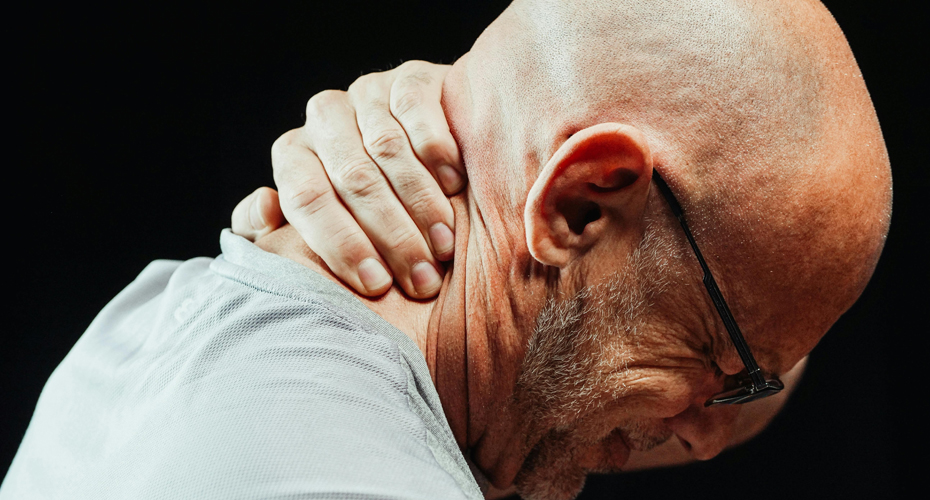Pain Group
Pain Group
Research carried out in the Exeter Pain Group involves combining mechanistic and clinical pain studies with data mining approaches in large datasets to help better understand phenotypic characteristics of pain conditions and to help inform more effective pain management. We actively engage with industry and clinical practice, working closely with patients and healthcare professionals to translate our findings into real-world applications.
Areas of research
- Nature based virtual reality as a novel pain management approach. Dr Sam Hughes and his research team (Dr Sonia Medina, Dr Sophie Clarke and PhD student Alex Smith) aim to understand how immersive VR can be used to harness therapeutic effects of nature using a combination of pain neuroimaging, neurophysiology and quantitative sensory testing in human pain models along mixed methods approaches chronic pain patients.
- Transcranial ultrasound stimulation and central pain processing. In collaboration with Dr Elsa Fouragnan (University of Plymouth) and the chronic pain neurotechnology network (www.cpnn.ac.uk), Dr Sam Hughes is investigating the effects of TUS in discrete deeper brain regions on pain processing in the brain and spinal cord using human pain models, neuroimaging and neurophysiology techniques.
- Brain, brainstem and spinal cord analgesic mechanisms of novel pharmacological therapies. Objective assessment of descending pain modulation systems can provide key biomarkers for use in the development of new mechanism-driven pain therapies. Dr Sam Hughes is interested in understanding the reliability of key neurophysiological measures of brain, brainstem and spinal cord function and using this information to guide future pharmacological studies.
- Pain and prediction errors. Dr Sonia Medina’s research seeks to translate pain mechanistic data into real-world scenarios using the Vsimulator platform. Specifically, the focus is directed towards disentangling the neural dynamics in individuals experiencing chronic pain and anxiety during everyday challenging situations, such as commuting on public transport. The overarching goal is to devise therapeutic VR-based protocols that aim to rehabilitate maladaptive cycles of anxiety, commonly contributing to the perpetuation and exacerbation of pain symptoms, in a precise and personalised manner for each patient. Dr Charlotte Lawrenson’s research uses rodent models to investigate how fear extinction behaviours predict susceptibility to chronic pain. Specifically she is interested in how neural networks, such as cerebellar-midbrain regions, interact to update internal models contributing to fear and pain states.
- Understanding pain through composite biomarkers. Using large multi-centre datasets, Dr Jan Vollert aims to build predictive models to better understand the generation of chronic pain, following diabetes, chemotherapy, and surgery. We use patient-reported measures as well as demographics and psychophysics and include biological data like genomics and proteomics.
- Improving design of pain studies. Only well conducted experiments yield meaningful results: as part of multiple international initiatives such as EQIPD, IMMPACT, PAINCARE, and INTEGRATE PAIN, Dr Jan Vollert has contributed to setting standards of conduct in pain studies: animal studies, experimental human studies, clinical trials, and real-world data studies.
- Sensory phenotyping for neuropathic pain. To improve treatment of neuropathic pain, Dr Jan Vollert works on refining sensory phenotyping as a means to identify subgroups of patients that are differentially responsive to specialised and disease-modifying new treatment options.
- Mechanisms underlying individual susceptibility to chronic pain. Dr Charlotte Lawrenson uses rodent models to investigate the link between affective state and chronic pain, with a specific interest in how neural networks encode defensive behaviours and interact with the descending pain modulatory system. She uses a variety of techniques to manipulate (e.g. chemogenetics) and/or record (e.g. electrophysiology) from different brain regions to gain insight into the neural dynamics underlying the influences of defensive state on evoked, spontaneous and operant pain-related behaviours.
Meet the team
| Name | Role |
|---|---|
| Dr Sam Hughes |
Senior Lecturer in Pain Neuroscience |
| Dr Jan Vollert | Lecturer in Neuroscience |
| Dr Charlotte Lawrenson | Lecturer in Neuroscience |
| Dr Sonia Medina | BRC Translational Research Fellow |
| Dr Sophie Clark | Post-doctoral Research Associate |
| Josh Murphy | PhD Student |
| Alex Smith | PhD Student; ; Co-supervised with the University of Plymouth |
| Samuel Mugglestone | PhD Student; ; Co-supervised with the University of Plymouth |

